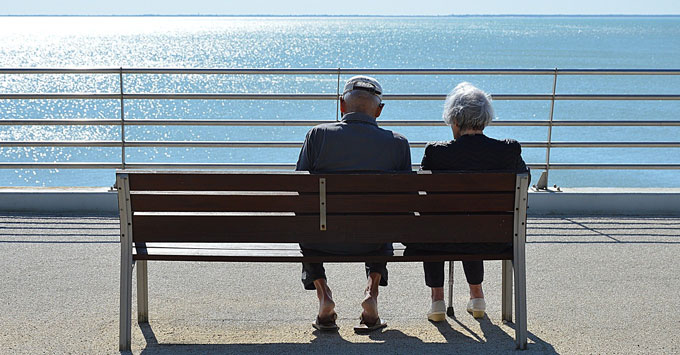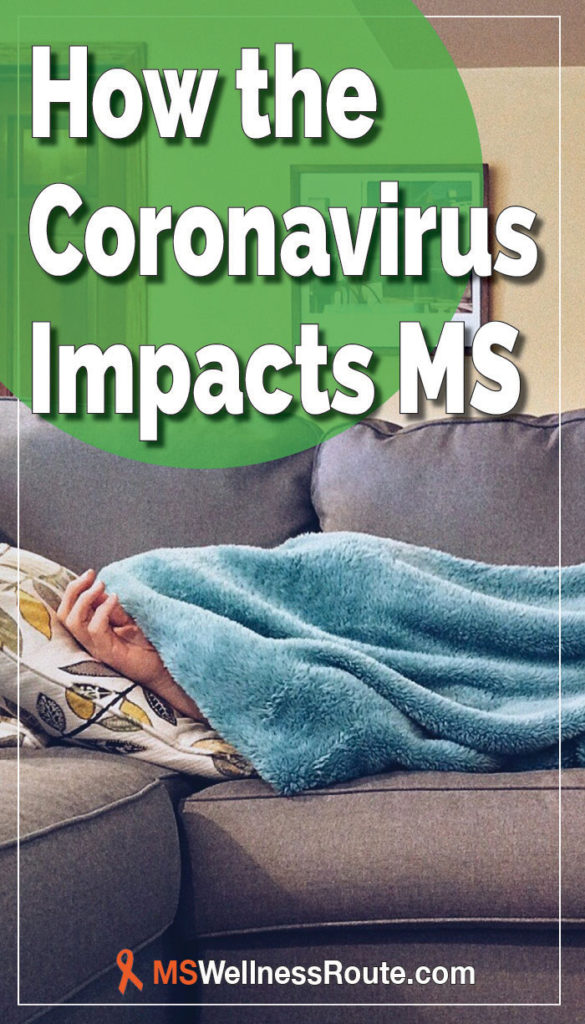Last Updated on November 29, 2023 by Cathy

Unless you haven’t watched the news and you haven’t left your house for the past few months. You’re probably fully aware of the coronavirus officially known as COVID-19. It started in China but has quickly spread turning it into a global emergency.
The media and everyone is talking about it. Store shelves are becoming empty. Events are being canceled or postponed, schools are closing. Governments around the world are enforcing quarantines and closing borders. Even our own president declared a national emergency. With all this negative attention it’s created a panic.
Fear is Contagious

People are hoarding food and supplies like bottled water and toilet paper. I’m not sure if it is more about catching the virus itself or the worry that their town is about to shut down. Whatever the reason, the toilet paper aisle is now empty at my store. Including many other stores across the nation.

Fortunately for me, my husband and I go “big” grocery shopping once every four weeks. We live in a rural area and our nearest grocery store is ten miles away. Toilet paper is the last thing we want to run out of so we always keep it well-stocked in our home. – We’ve been doing this for years.
When store shelves are empty it causes people to panic. As the store restocks its shelves the next person to come along stocks up too. And so on, and so on. The next thing you know, everyone is stocking up.
Fear is contagious. Don’t get trapped into this, it only causes stress. Stress can cause multiple sclerosis (MS) to flare up, that’s the last thing you need. Instead, take a deep breath and look at the facts. Knowing the facts will help protect you from the virus and it will help you stay calm.
What is the coronavirus (COVID-19)?
Just like the common cold or flu, COVID-19 is a virus. It started in Wuhan, China, officials believe from an animal market (a market that sells meat like fish). And like the cold and flu, it is highly contagious. Symptoms of the COVID-19 range from a mild cold to more severe symptoms. Some people could even be carrying the virus but show no symptoms.
The incubation time can be from 2-14 days. This means from the time you are first exposed it can take up to fourteen days for your first symptom to appear. Unfortunately, during that time the infected person is walking around exposing it to other people. That’s why the virus is spreading so quickly.
Symptoms can include:
- Cough
- Diarrhea
- Difficulty breathing (severe cases)
- Fatigue
- Fever
- Runny nose
- Sore throat
Symptoms aren’t always the same for everyone. If you feel like you’re getting a bad cold or the flu. Please stay home and don’t expose it to others. Whether it’s the cold, flu, or coronavirus no one wants to catch it.
If you develop symptoms and you think you may have the coronavirus contact your doctor for advice.
Who Is Most At Risk

The people who are most at risk are people over seventy, especially if they smoke. And people with other health issues. Such as heart disease, people on chemotherapy, or people who have diabetes. When a diabetic gets sick it causes their blood sugar to shoot up to dangerous levels.
My son is a type 1 diabetic, a few years ago he contacted the flu which caused him to get extremely sick. You know when you don’t feel good you don’t feel like moving? For diabetics, they need to get up check their blood sugar, take insulin, and test for ketones.
If their blood sugar stays high for too long acid levels rise. It causes severe vomiting, sharp stomach pains, frequent urination, and heavy breathing. These are signs of diabetic ketoacidosis (DKA) which is life-threatening. He ended up in the hospital’s ICU for three days until all his numbers were back to normal. That’s why it is important for people to stay home when they are sick. You never know who it’s affecting.
How the Coronavirus Impacts MS
Depending on how severe your MS is will depend on how at-risk you are. If you do get the coronavirus or the flu it can cause your symptoms to temporarily get worse. If you’re taking one of the disease-modifying drugs you need to be extra careful. It could develop into more serious complications such as pneumonia.
Several years ago I caught the flu. I had a fever of 103 degrees and my legs became paralyzed. It was bad enough having the flu but I couldn’t even roll over in bed. Thankfully, I had my husband to help me.
I used to suffer from heat intolerance (I no longer have it) and that always caused my legs to quit working. I believe my legs became paralyzed because of my high body temperature. Once my temperature went back to normal my legs started working again.
By following The Wahls Protocol and the recommendations in the book Healing Multiple Sclerosis by Ann Boroch, I was able to reverse many of my MS symptoms including my heat intolerance.
How to Protect Yourself from the Cold, Flu, and COVID-19
If you are eating an anti-inflammatory diet, and I hope you are, you’re already on the right path. As far as store shelves being empty goes, people are mostly stocking up on processed foods. Fortunately, at least in my area, there’s plenty of organic and natural foods.
If you’re concerned about not having enough food look in your frozen food section. Frozen fruits and vegetables are just as nutritious as fresh. Look for jars of artichoke hearts or olives and cans of wild-caught salmon, sardines, and tuna. Also, fermented foods like sauerkraut, pickles, and kombucha. If you live in a warmer area check farmer’s markets.
Be Proactive to Protect Yourself
It’s important for everybody to be proactive. It’s especially important for people who are at a higher risk. And people with MS to avoid getting sick in the first place. Here are some tips to follow:
- Wash your hands thoroughly especially after touching something someone else has touched
- Avoid touching your face
- Don’t shake other peoples hands
- Take vitamin C
- Take vitamin D
- Get 7 to 8 hours of sleep each night
- Stay home if you feel ill
Quick Links To Information In This Post:
Anti-Inflammatory Diet For Beginners
What Is The Wahls Protocol?
The Association Between Candida And Multiple Sclerosis
Supplements for the Flu and COVID-19
Vitamin C protects our immune system. It also protects the brain and spinal cord from free radical damage. Our bodies don’t make vitamin C so we get it from the food we eat like citrus fruits and tomatoes.
There’s a lot of debate on whether vitamin C is beneficial for people to take for the cold or flu. But for people with MS, they need to take it to help restore their immune system. I personally take vitamin C every day year-round.
Most people with MS are deficient in vitamin D so it’s important to get tested. Don’t except a “normal” result, get the actual number. It should be between 60-80 ng/mL. I use an online lab like Walk-in Labs or Health Testing Centers.
Taking a vitamin D supplement is important. But so is going outside to get some fresh air and sunshine. During the 1918-1919 influenza pandemic, there were so many infected. Hospitals had to set up tents for the overflow of people. Then they noticed infected people in the tents had better outcomes. This was due to the fact that they were outdoors getting fresh air and sun (vitamin D).
Did you know the 1918 influenza epidemic killed more people than World War I?
Anti-Inflammatory Diet For Beginners
What Is The Wahls Protocol?
The Association Between Candida And Multiple Sclerosis

Free Wellness Library!
Subscribe for free and I’ll send you the password to my secret library filled with many printables for your wellness journey.
Want to remember this health tip? Pin it to your favorite Pinterest board!

Resources:






Cell core products..heard of them?